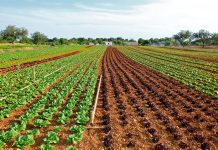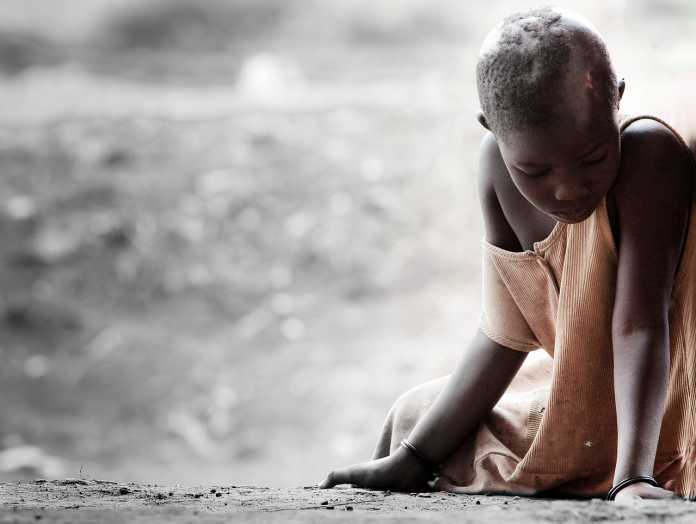The United Nations has just published, and Google News is heavily promoting, an online publication titled, “Five things you need to know about the climate emergency in West and Central Africa.” The publication highlights countries with some of the most repressive governments in the world and then invents alleged global warming impacts to explain those countries’ failures. Yet, the truth is entirely different. Here are the five assertions by the United Nations, with the five things you really need to know about how the U.N. is falsely blaming global warming for African dictators’ failures:
“1. The Sahel, Land of Extremes” – The U.N. publication claims, “In the Sahel, temperatures are increasing 1.5 times faster than in the rest of the world, and the number of floods almost doubled between 2015 and 2020. These effects exacerbate a context where 29 million people rely on life-saving assistance this year.”
In 2013, the U.N. published an article, “The Sahel: One region, many crises.” The article claimed, “Even in normal years, millions are in a permanent state of food insecurity. Over the past five decades, persistent droughts have contributed to famine episodes. There is now a need to break the cycle of recurrent food crises in the region, many humanitarian actors say.”
Great news, the cycle has been broken and more rainfall is greening the region. As the Guardian reported just three years later, “Thankfully the region has become wetter again, and now new research indicates that the return of the rains is most likely a beneficial side-effect of global warming.”
So, what does the United Nations claim now that global warming has brought long-desired rains to the Sahel? The U.N. now claims, “the number of floods almost doubled between 2015 and 2020.” Well, yeah, if the region was bone-dry before, people couldn’t even grow food, they prayed for rain, and now global warming brings those welcome rains, it stands to reason that a small negative side-effect of the return of rain will be more of the infrequent floods that occur. Only climate alarmists that are desperately seeking to create climate crises would report the welcome arrival of much-needed rains as a climate crisis.
“2. Women Pay a Heavy Price” – The U.N. publication claims, “Climate hazards especially affect women and girls, who often bear a disproportionate burden to provide for their families. These hazards act as a ‘threat multiplier,’ increasing the levels of intimate partner violence, sexual violence and child marriage.”
The U.N. publication never claims how or why global warming causes more wife-beatings, abuse, and the cultural institution of parents arranging marriages for their pre-adult children. The U.N. publication just makes the conclusory statement as if it is a self-evident fact.
The only justification we can think of is the often-asserted claim that global warming is harming crop production, which drives people into poverty, which then stresses people out and forces them to beat their wives. The crop data throughout Africa, however, tell a different story. If anything, global warming is reducing the pressures that allegedly drive people to beat their wives and force their children into premature marriage.
Crop production throughout Africa is enjoying substantial long-term gains as the Earth modestly warms. Here are a few examples, provided by the information website The Global Economy, presenting United Nations Food and Agriculture Organization data reporting cereal (rice, wheat, corn) yields on the left axis in kilograms per hectare:
Chad
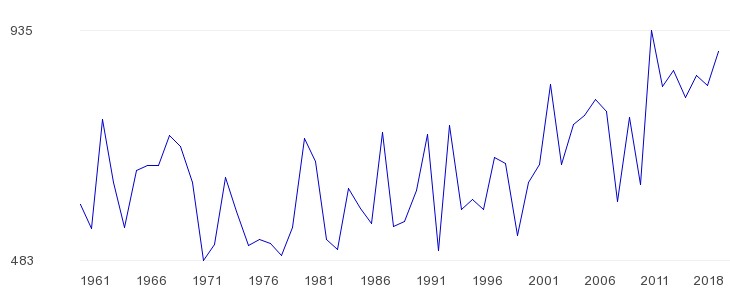
Nigeria
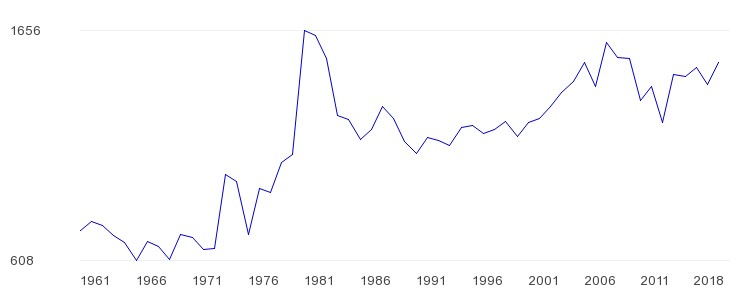
Mali
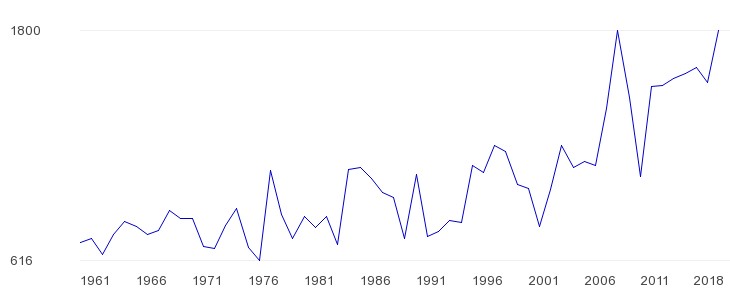
Burkina Faso
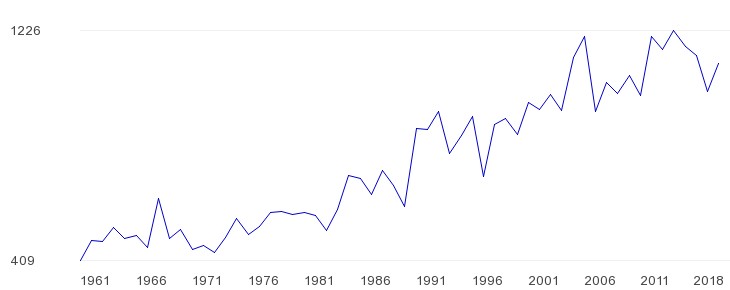
Egypt
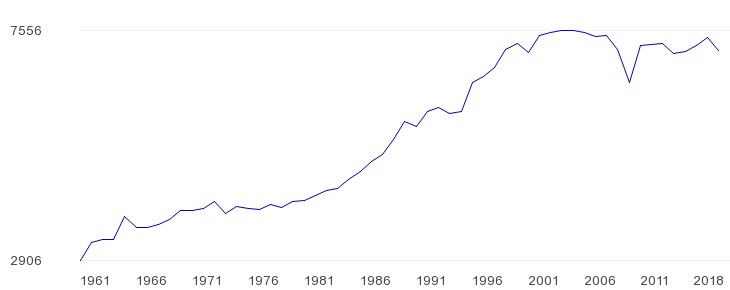
Ethiopia
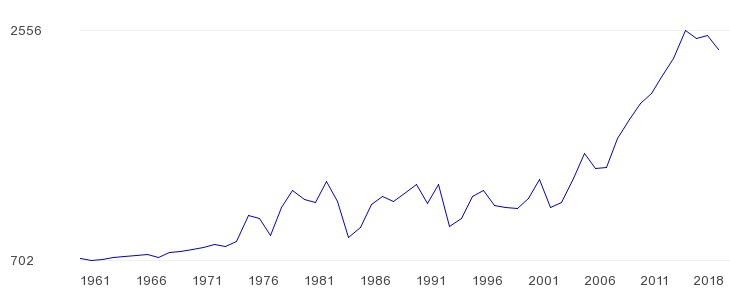
And the list goes on and on and on….
Clearly, if economic factors influence African wife-beatings and child marriages, and global warming impacts economic factors, then global warming is reducing wife-beatings and child marriages, not making them more prevalent.
“3. Climate Negatively Effects Food Production” – The U.N. publication claims, “Climate hazards have led to the degradation of 80 per cent of the Sahel’s farmlands and drastically reduced food sources. Food insecurity continues to increase, reaching record peaks every year; 14 million people are struggling with crisis or emergency levels of food insecurity. People living in major hotspots of compounded crises, such as the Central Sahel and the Lake Chad basin, pay a heavy price. This year, 5.2 million people in the Central Sahel and 5.1 million in the Lake Chad basin face hunger.”
That is a nifty narrative, but the objective facts tell a different story and don’t lie. Chad, Nigeria, Mali, Ethiopia, Burkina Faso are all Sahelian nations. The crop data objectively measured and presented above tells a completely different story than what the U.N. publication asserts.
We can also show the U.N. publication’s dishonesty by looking at NASA satellite images showing how vegetation and greenery are increasing and decreasing around the globe. The NASA image below shows that in the Sahel region at the southern edge of the Sahara desert, vegetation and greenery have been increasing in more areas and to a greater degree than in the small regions of the Sahel where vegetation is retreating. Increasing greenery reflects better crop conditions.
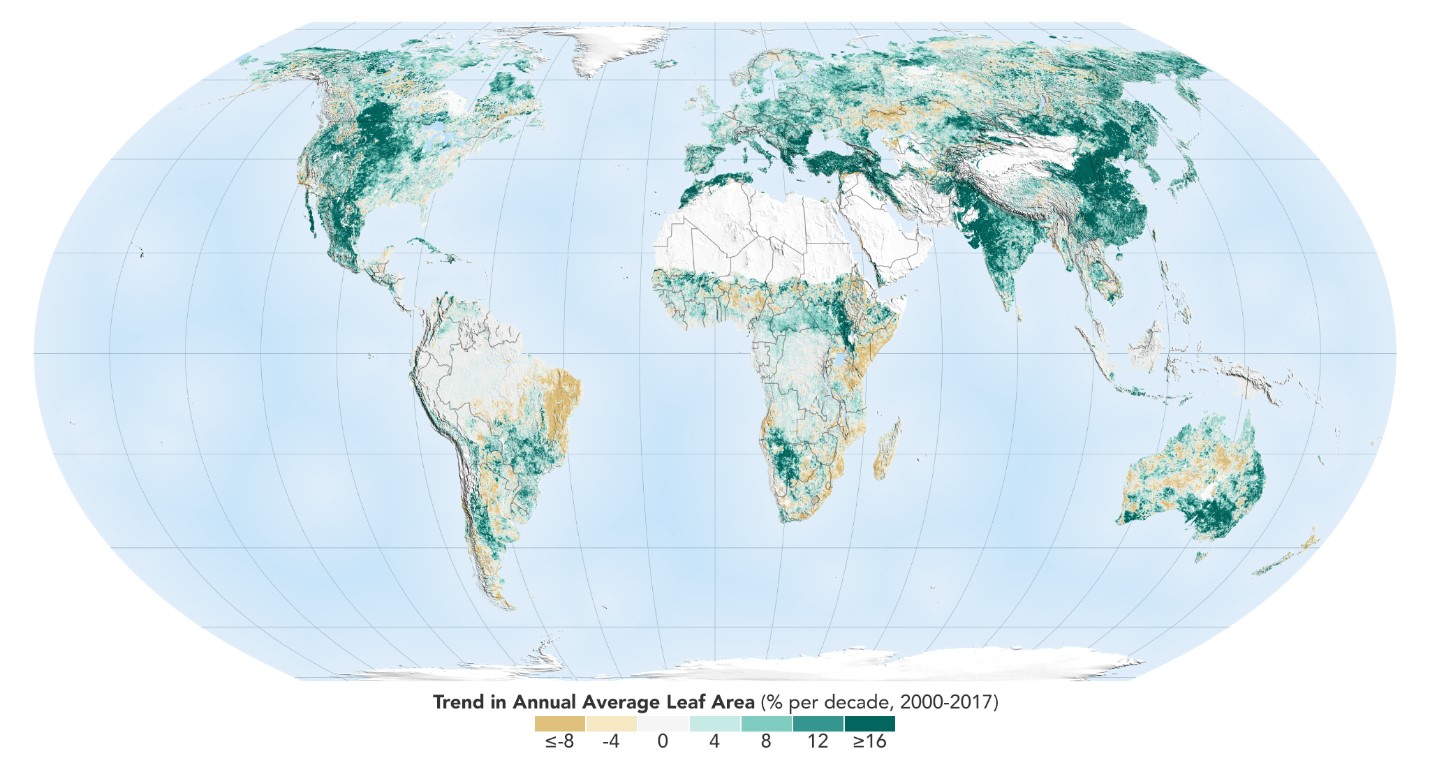
“4. Herders and Farmers Fight Over Resources” – The U.N. publication claims, “Farmer-herder violence in West and Central Africa has increased over the past 10 years, with concentrations in northern Burkina Faso, central Mali, and Nigeria. Extreme stress, property and communal loss, changes in land use, and a scarcity of food and water contribute to community conflict over resources and lead to an increasing number of incidents. In Mali, the cycles of farmer-herder violence and reprisals have become increasingly lethal since 2015 and resulted in nearly 700 fatalities in 2020.”
Much like its section on women, the U.N. report references cultural violence and then states, without supporting evidence, that global warming is to blame and making it worse.
The whole notion of global warming causing herders to beat, rob, and kill each other is based on the assertion that global warming is stifling the vegetation growth and crop production that supports animal herding. Yet, as shown above, the objective data don’t lie. Sahelian and African vegetation and crop production are substantially improving, not declining, as the Earth modestly warms.
“5. Heavy Rains Hinder Humanitarian Access” – The U.N. publication claims, “A record 54.3 million people need humanitarian assistance across West and Central Africa, but extreme weather patterns are affecting the capacity of humanitarian personnel to quickly reach the most vulnerable people. In the Democratic Republic of the Congo, only 1.3 per cent of roads are paved, and the remaining road system is prone to floods during the rainy season. This leads to landslides and roads being inaccessible, delaying humanitarian assistance for days.”
The U.N. presents a heartbreaking tale of flooding and resulting humanitarian crises in Congo, but the objective data destroy the false assertion that global warming is to blame. A study of rainfall data in central Africa, presented last year in the peer-reviewed journal Atmospheric and Climate Sciences, shows no trend-change in precipitation during the past 100 years in the Democratic Republic of Congo. How can global warming be making flooding in Congo worse when there is no change in the amount of rainfall?
Shilling for Dictators – In summary, the objective data show that the United Nations is more concerned with making excuses for the failures of African dictators than presenting accurate information about global warming. As shown in the World Population Review ranking of Freest Countries, the nations featured in the U.N. publication are among the least free in the world. Only 1.3 percent of roads in Congo are paved because the country is run by repressive dictators, not because of global warming. Food insecurity continues to increase in the Sahel, despite a greening of the region and increasing crop production, because the region is governed by repressive dictators.
Global warming is the convenient excuse presented by dictators and big-government apologists throughout the world. The fact is that global warming is creating more beneficial conditions in Africa and throughout the world, but global warming is the convenient scapegoat on which to hang fictitious crisis and real crises that are created by government, not climate.







